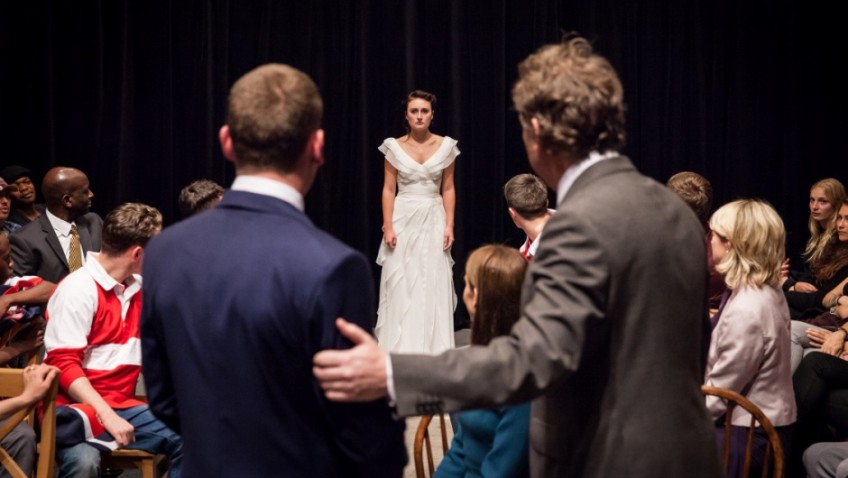Robert Tanitch reviews Our Town at Almeida Theatre, London, N1
British theatregoers rarely have a chance to see Thornton Wilder’s play. American theatregoers see it all the time. First performed in 1936, it is one of the most popular American dramas and especially with high schools.
Our Town describes the life in a typical American small town in New Hampshire, at the beginning of the century, a nice, ordinary town in which nothing remarkable happens.
The action deliberately concentrates on the humdrum and trivial so that the audience finds it easy to respond to the play’s simple values and simple emotions. The parable is both specific and general: a bitter-sweet cycle of Daily Life (Act 1), Courtship and Marriage (Act 11) and Death (Act 111). Life goes so fast we don’t have time to look at one another.
Our Town is not, however, a nostalgic picture of times gone-by, so much as a genuine “attempt to find a value above all price for the smallest event in our daily life.”
Wilder, who was more interested in veracity than reality, introduced a then revolutionary style of theatre. Feeling that a set stifled the life in a drama by narrowing the action to one moment in time and place, he wrote a play to be produced without scenery and props and relying on mime.
Here are just two kitchen tables and a number of wooden chairs. There is not even the iconic step-ladder!
 I wish David Cromer’s production (originally seen off-Broadway) was not played out on a thrust stage with the cast right there in among the audience. It’s fine for the wedding but not so good for the scene in the graveyard. The audience gets in the way.
I wish David Cromer’s production (originally seen off-Broadway) was not played out on a thrust stage with the cast right there in among the audience. It’s fine for the wedding but not so good for the scene in the graveyard. The audience gets in the way.
Cromer also plays the Stage Manager, who frames the action. He has to deliver the homespun philosophy – You’ve got to love life to have life and you’ve got to have life to love life – but there is never anything mawkish and folksy about him at all.
The British cast speaks the American text with English accents to underline the play’s universality. David Walmsley has a charming proposal scene and Annette McLaughlin is a delight as a woman who enjoys weddings.
To learn more about Robert Tanitch and his reviews, click here to go to his website




